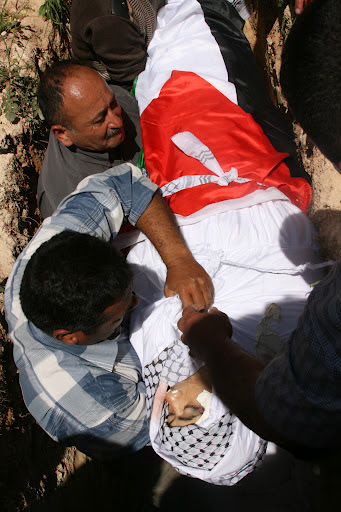Tag: ‘Price tag’ campaign
-
Fadi Abu Zeitoun, killed as settlers attacked farmers
by Rana H. 9 April 2012 | International Solidarity Movement, West Bank Israeli settlers attacked and chased a group of Palestinian farmers last Thursday, causing a tractor to flip over during the chase, causing the death of the Palestinian driver. On Thursday, April 5th, armed settlers from the illegal Israeli colony of Itamar attacked a…
-
Qaryut: 8 year old injured by bomb planted by Israelis
by Lydia 2 April 2012 | International Solidarity Movement, West Bank Yemams father did not have time to respond to his son before the bomb exploded. Ripping through three layers of clothes and even more layers of skin, his father had to watch the tragedy unfold before his eyes. Yemam Mohammad Fatah Azam is just…
-
Eight children from Beit Ummar facing suspension from their village of residence
by Satu 26 March 2012 | International Solidarity Movement, West Bank Eight children between the ages of 14 to 17 years old were arrested in Beit Ummar during night raids from 6th to 11th of March conducted by the Israeli occupation forces following a nonviolent solidarity demonstration for the hungerstriker Khader Adnan on the 21st…


